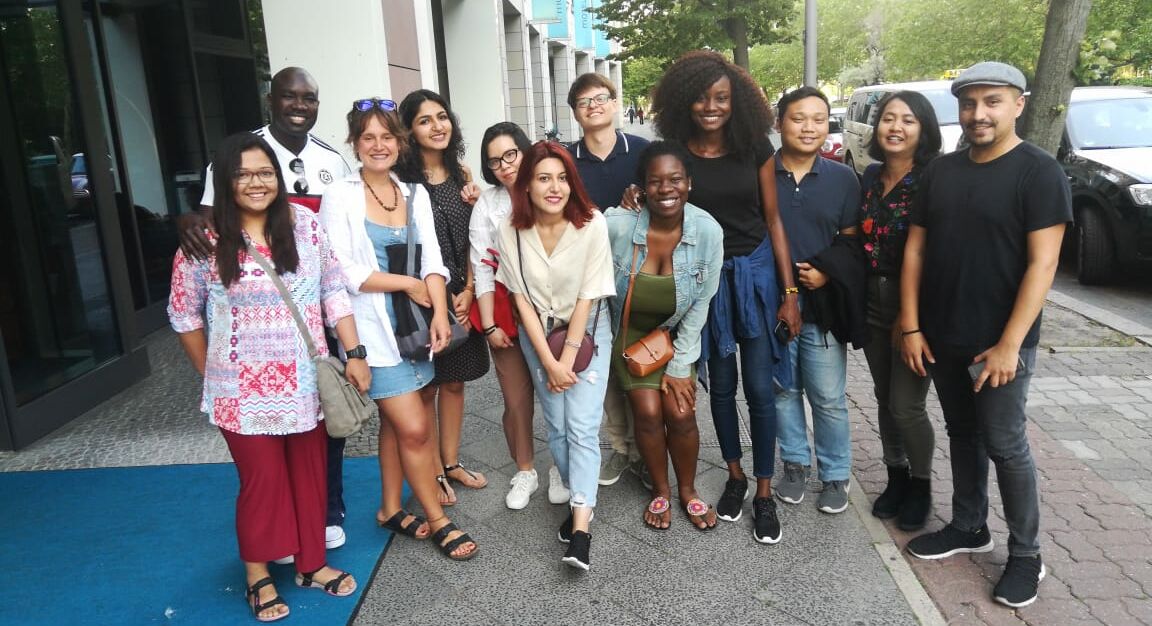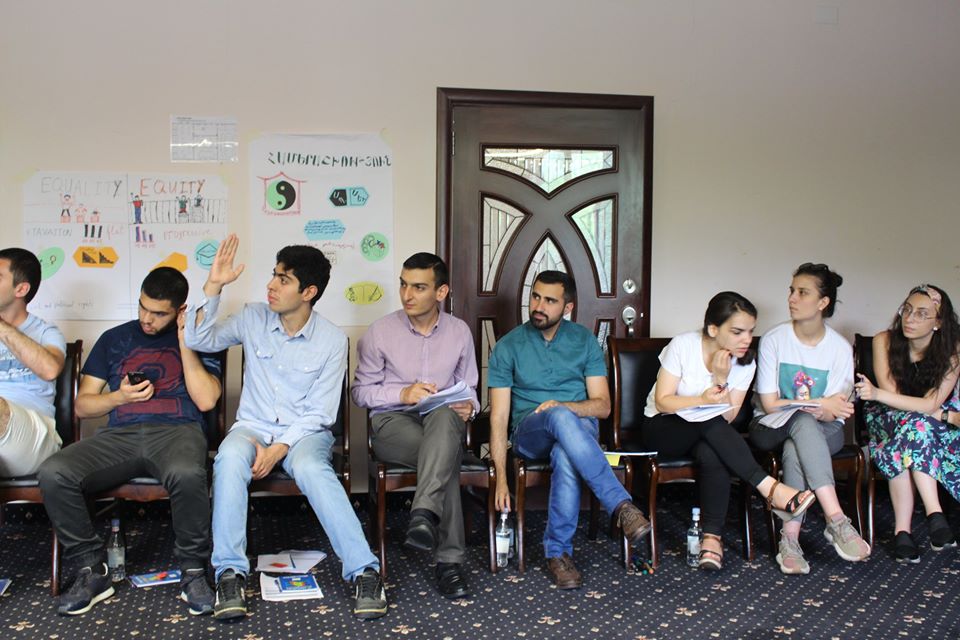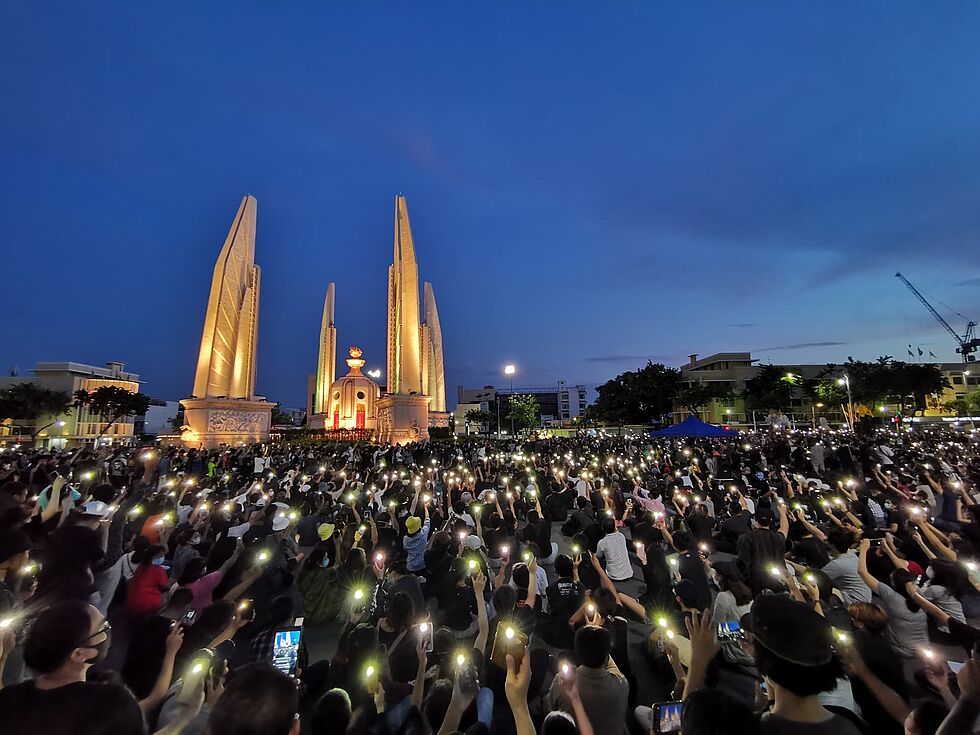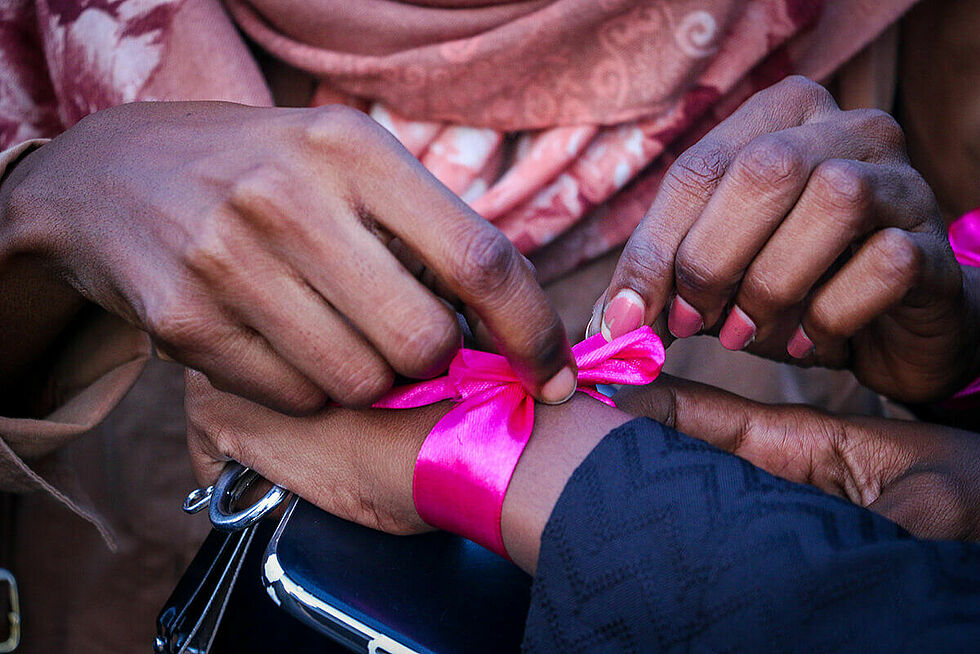From street protests to active politics: keeping Armenian youth up to political speed

The political culture of Armenia has changed significantly since popular demonstrations prompted a change of power in 2018, according to law student and social justice activist Shushana Sirakanyan. “Progressive ideas were not really part of Armenia's political agenda a couple of years ago,” she said, but now they are being more openly addressed within existing institutions.
To help the electorate navigate this new political landscape Sirakanyan established the Social-Democratic Platform of Armenia together with other alumni of the FES-run Academy for Social Democracy, which she attended in 2016. The platform organizes youth discussion workshops on labour, education, social justice and ideology. It also launched the Entramat app, which matches users’ opinions with parties’ policies, to inform voters particularly in areas with low participation.
Sirakanyan, 26, also participated in the 2019 edition of the FES International Kassel Summer Academy (IKSA) titled Making Globalization Fair, along with 21 other participants from 16 countries. She spoke with FES on the sidelines of the event about her work to keep Armenia’s youth up to political speed.
What current issues need youth engagement in Armenia?
Currently our society is discussing many topics that were perhaps taboo before the 2018 Velvet Revolution. One is the Council of Europe Convention on preventing and combating violence against women and domestic violence, also known as the Istanbul Convention. Armenia is a signatory, and the parliament is due to ratify it. But right-wing activists consider the convention an interference in national affairs, while democratic forces consider domestic violence a serious problem for our country, and the convention to be part of a solution. Another topic is the environment. A proposed gold mine in the Amulsar region has met with opposition from activists and residents. Environmentalists oppose the mining industry of Armenia in general, as we have 16 metal mines in our small country, and most of those harm the nature and the health of the population irreversibly. These issues are very decisive for the future of Armenia. The outcomes will show what kind of society and state we want. Broad-based youth participation can play a huge role in it, as youth is more open-minded and progressive.
Is the Armenian youth engaging effectively, and how?
Youth was the main driving force of the 2018 Velvet Revolution, and can be described as the most politically active segment of society. However, in my opinion their participation needs to be institutionalized. Young people were always discouraged from engaging in formal politics, so their only form of participation was through civic activism or non-governmental organizations (NGOs). Political parties were discredited among the youth and nobody wanted to deal with them, including me. Now, there is more motivation to be involved in formal political processes. However, there are some barriers on a cultural level: Our society is deeply ageist and it's not easy for a young activist or politician to bring some fresh ideas into the public discourse and to be taken seriously.
This is why initiatives and protest movements are the most common form of participation. Of course, when young people come together to raise awareness of a specific issue it can be effective, but I think we need sustainable engagement with a long-term agenda and vision, not just any kind of youth participation. It must be meaningful and based on values and ideals.
How do the Academy for Social Democracy or the Kassel Summer Academy help?
Political education is very important for social democracy in Armenia. People need to know what the differences between political ideologies are. This will help to make our political culture less populist, which is one of our long-term goals. My participation in the IKSA made me look beyond local problems and think globally. I met very inspiring progressive young people from all over the world. I often discuss the topics of IKSA with my team. We are going to organize a discussion in October on the role of trade unions, and the German trade unions and workers councils will be a good case study. I was also inspired by the discussion on the role of women in the workforce, so I am planning to further go into the social aspects of gender inequality.
Globally, young women are currently leading the way for social change: Who inspires you?
There are many women inspiring me every day. Many of them are not even famous. Recently, I started following the Fridays for Future movement led by 16-year-old Greta Thunberg. I find it very telling that this young person is such a vocal advocate for climate change action, while the world leaders actually responsible for the future of our planet are ignoring the issue.
###
The IKSA is supported by FES. To apply contact your FES country office or directly Katrien Klüver.
About FES Connect
Connecting people, in the spirit of social democracy, we source and share content in English from the German and international network of the Friedrich-Ebert-Stiftung.






